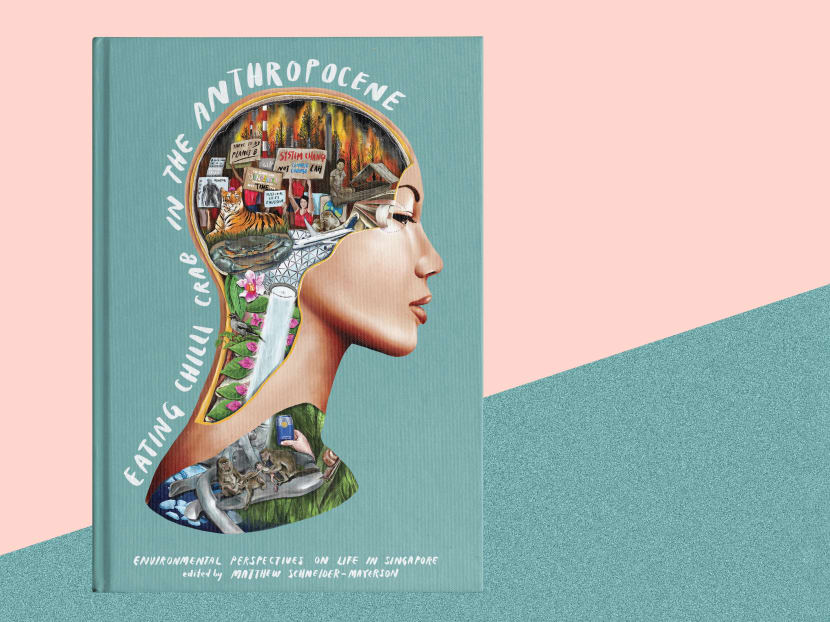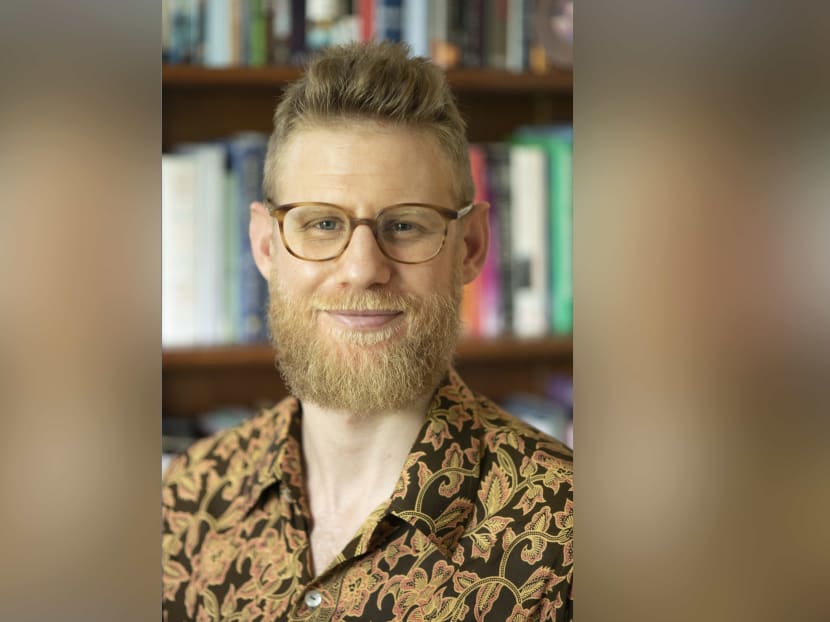Environment, human activity and chilli crab — a Singapore book by youths explores their links and more
SINGAPORE — Men have changed the Earth so much in recent decades by warming and polluting it that scientists have dubbed this era as the anthropocene, or the age of humans.

Eating Chilli Crab In The Anthropocene features 12 essays that look at the ways “Singaporean life and culture is deeply entangled with the nonhuman lives that flourish all around us”.
SINGAPORE — Men have changed the Earth so much in recent decades by warming and polluting it that scientists have dubbed this era as the anthropocene, or the age of humans.
It also happens to be the basis for a book titled “Eating Chilli Crab In The Anthropocene” that will be released here on June 27.
Publisher Ethos Books says it is the first “to examine contemporary Singapore from an ecocultural lens, looking at the ways that Singaporean life and culture is deeply entangled with the nonhuman lives that flourish all around us”.
Featuring a collection of 12 essays written by young adults in their mid-20s, it also includes a chapter that gives the book its title.
The anthology’s editor, Dr Matthew Schneider-Mayerson, said in an interview with TODAY that part of the book’s goal is to help Singaporeans think about the ways in which the environment is not “something distant and irrelevant” to their daily lives.
Instead, it is something that they are already deeply entangled with.
“And what’s more Singaporean than food?” said the assistant professor of environmental studies at Yale-NUS College.
The 38-year-old noted that the chapter on chilli crab, like a lot of the chapters, “portrays familiar aspects of Singaporean life and culture from a new perspective”.
“The anthropocene is one way to name this perspective — it is the geologic epoch that we now find ourselves in, in which humans act as the dominant force on Earth,” he said.
“Combining these two elements, chilli crab and the anthropocene, brings thinking about global environmental issues home to Singapore,” he added.
“It also contains the playfulness of an unexpected juxtaposition, which is present in many of the chapters.”

For instance, in her essay that bears the book title, Ms Neo Xiaoyun referenced the mud crab’s inclination towards cannibalism and said: “It seems that mud crabs enjoy eating each other almost as much as Singaporeans relish their taste.”
In another chapter, Oily Mirror: 1950s Orang Minyak Films as Singaporean Petrohorror, Mr Yogesh Tulsi parallels Singapore’s petro-chemical companies with that of the oil-covered monster from Malay folklore.
The book also contains somber passages about the heavy price Singapore’s environment — and even some of its residents — have paid for the country’s economic progress.
In Ms Fu Xiyao’s Dumpster Diving In Semakau: Retrieving Indigenous Histories from Singapore’s Waste Island, she recalls the displacement of the indigenous residents of Singapore’s southern islands.
In one example, she recounted how one resident of Pulau Semakau said that the island community was promised a police post, a community centre and a Malay school.
Instead they were evicted from their homes to make way for the creation of the offshore landfill, which is an amalgamation of Semakau and the neighbouring Pulau Seking.
Another essay, Lovable Lutrines: Curated Nature and Environmental Migrants in the Ottercity, speaks of the double standards regarding wildlife in Singapore.
The author, Ms Heeeun Monica Kim, explores the ethics of deciding whether otters should be afforded more protection than less endearing critters simply by virtue of their cuteness.
“This book was written and edited in a spirit of affectionate and constructive criticism,” said Dr Schneider-Mayerson.
While there is much that Singapore has done well when it comes to the environment, such as its lush greenery and the incredible variety of animals that flourish on the island, he said that as with every country in the world, there is room for improvement.
He added that the authors are young thinkers and activists who represent a set of voices not often highlighted in constructive dialogues in Singapore and their writing highlights ways of seeing that “open new possibilities”.
Explaining why the book only includes voices from authors born between 1993 and 1998, Dr Schneider-Mayerson said it is not about omitting the voices of older generations.
Rather, it is about “including and centring” the voices of those who will be most affected by climate change.
“We’re accustomed to thinking of elders as teachers and young people as students, but in this time of a global movement spearheaded by a Swedish teenager (environmental activist Greta Thunberg), familiar roles have been reversed,” he said.
“The sad truth is that those of us in our 40s, 50s, 60s and 70s failed to stop climate change when we had the chance to do so.
“If we let that sink in, it’s a call to humility, to accept that the solutions to our current crisis might require new ideas and new voices.”
Ms Neo, the author of the book title essay, told TODAY that a number of the pieces in the book pertain to different facets of Singapore culture or society that are viewed with a "very narrow" human-centric lens.
This includes the utilitarian manner in which Pulau Semakau is treated, or how animals are perceived. For example, she said many see crabs existing purely for our consumption, without thinking of the crustacean’s broader relationship with the ecosystem at large, while tigers are in zoos solely for our viewing pleasure.
Mankind’s turbulent relationship with the tiger is explored in the essay Consuming Tigers by Ms Ng Xin.
"The book encourages readers to think about the issues present (in society) and contemplate them in a different light," said Ms Neo, a 24-year-old policy officer, who also volunteers at the social enterprise Ground-Up Initiative.
Dr Schneider-Mayerson acknowledged that that it might seem like a difficult time now to read about anything that is not related to the Covid-19 pandemic.
But in many ways, he said, now is the ideal time to “read, think and talk” about these environmental issues.
He said the ongoing pandemic is related to familiar environmental issues and pointed out how scientists have shown that deforestation, factory farming, and climate change “make pandemics worse and more likely”.
“For better or worse, the pandemic has hit pause on the entire world, and this gives us the opportunity to imagine and enact the kinds of changes that would have seemed impossible just a few months ago,” he said. “I hope we don’t pass it up.”
Eating Chilli Crab in the Anthropocene is available for pre-order from now till June 26 at bit.ly/eatingchillicrab, and is priced at S$23.36.











